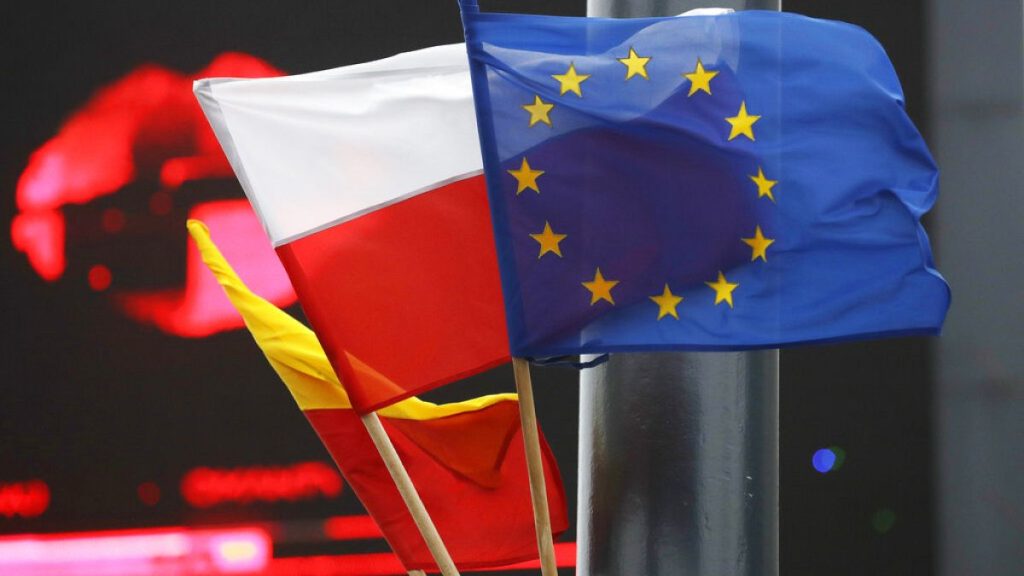Poland’s second presidency of the Council of the European Union commenced on January 1, 2025, marked by an inaugural gala at the National Theatre in Warsaw. This six-month term places Poland at the helm of the Council’s agenda, responsible for steering its work and representing member states in negotiations with other EU institutions. The celebratory gala featured a specially commissioned performance by renowned composer Radzimir Dębski, titled “Ukłon” (Bow), a tribute to the rich legacy of Polish classical music, incorporating influences from composers like Szymanowski, Penderecki, Górecki, Kilar, and Bacewiczówna. Dębski’s performance, accompanied by the National Theatre’s orchestra and choir, provided a fitting artistic backdrop for the commencement of Poland’s leadership role within the EU.
Prime Minister Donald Tusk addressed the assembled dignitaries, acknowledging the weight of the undertaking and emphasizing Poland’s commitment to leveraging its national wisdom and experience for the benefit of the Union. He underscored the critical link between European strength and survival, advocating for a revitalized and powerful Europe capable of upholding its values and sovereignty, particularly in light of the ongoing challenges facing the continent. Tusk’s remarks positioned Poland as a staunchly pro-European nation, a significant shift from its previous reputation as a sometimes contentious member. This pro-European stance signals Poland’s intent to actively contribute to the Union’s stability and progress during its presidency.
The gala was notably marked by the absence of key figures. European Commission President Ursula von der Leyen was unable to attend due to illness, while Polish President Andrzej Duda was also absent. Furthermore, the Hungarian ambassador was disinvited following a diplomatic dispute concerning the granting of asylum in Hungary to a fugitive Polish lawmaker, Marcin Romanowski. This incident highlights the complexities of intra-EU relations and the delicate diplomatic balancing act required during Poland’s presidency.
Poland’s presidency comes at a pivotal moment for the European Union, characterized by the ongoing war in Ukraine and the persistent migrant crisis at the Polish-Belarussian border. These pressing issues are expected to dominate the Polish presidency’s agenda, with a focus on strengthening European security and defence. European Council President Antonio Costa, present at the gala, acknowledged the significance of Poland’s leadership during these challenging times. He praised the vitality of Polish democracy and its strong national identity as assets that bolster the entire European Union, while also emphasizing the continued importance of supporting Ukraine in its ongoing struggle.
This second Polish presidency of the Council of the European Union carries significant weight, occurring during a period of geopolitical instability and internal challenges within the bloc. Poland’s leadership will be tested as it navigates complex issues ranging from the war in Ukraine and the migrant crisis to internal EU dynamics and the pursuit of a stronger, more unified Europe. The success of Poland’s presidency will depend on its ability to effectively address these challenges while simultaneously promoting its own national interests and contributing to the overall stability and prosperity of the European Union.
The gala itself served as a symbolic starting point, showcasing Poland’s cultural heritage and its commitment to European integration. The absence of key figures and the ongoing diplomatic tensions, however, served as a reminder of the complex political landscape within which Poland must operate during its six-month term. The focus on European security and defence, coupled with the emphasis on supporting Ukraine, signals Poland’s intention to prioritize these critical issues as it guides the Council’s agenda. The world will be watching closely as Poland navigates these challenges and shapes the direction of the European Union during its presidency.














